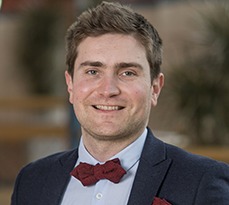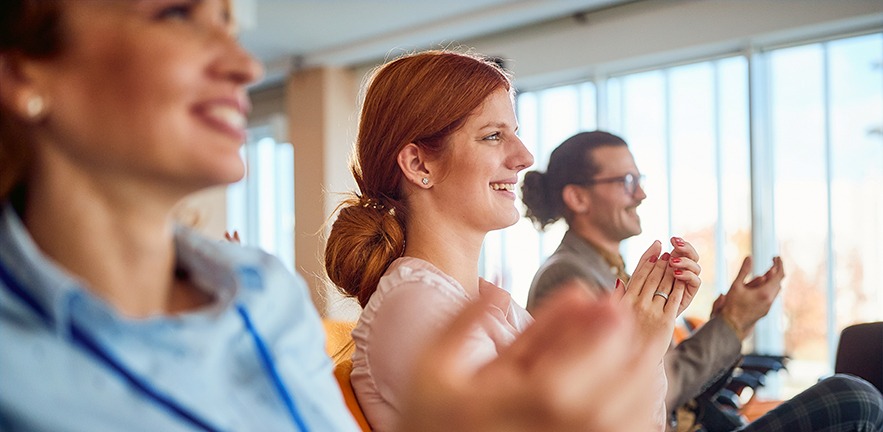Cambridge Judge Business School welcomed Young Global Leaders of the World Economic Forum for a one-week educational programme to help them develop leadership skills for the post-pandemic world.

Participants came in early May from all across the world – including Sierra Leone, Mongolia, Argentina, and the US – comprising high achievers from the corporate sector, government, and culture – including current and former ministers, successful entrepreneurs, and high-level executives.
The programme was led and designed by Dr Thomas Roulet, Associate Professor in Organisation Theory and Deputy Director of the MBA Programme at Cambridge Judge. It combined the strengths of the University of Cambridge faculty and ecosystem, and included sessions by several other Cambridge Judge faculty:
- Mark de Rond, Professor of Organisational Ethnography
- Stelios Kavadias, Margaret Thatcher Professor of Enterprise Studies in Innovation & Growth
- Allègre Hadida, Associate Professor in Strategy
- Stella Pachidi, Assistant Professor in Information Systems
- Karla Sayegh, Assistant Professor in Organisation Theory & Information Systems
- Jaideep Prabhu, Professor of Marketing.
The programme focused on the ‘new normal’ of a post-pandemic world, and helped participants decipher what it means to be a global leader in this context through dialogue between people of different backgrounds and sectors. Among the topics covered: planning for uncertain futures, managing teams in extreme context, unleashing creativity, creating organisational culture for diversity and the future of work, and dealing with technological innovation.
The Dean of Cambridge Judge, Professor Mauro Guillén, talked about future business trends based on his bestselling book, 2030. The Pro-Vice-Chancellor of the University of Cambridge, Cambridge Judge Professor of Strategy & Policy Kamal Munir, discussed his research on leadership at the ecosystem level, and chaired a formal dinner at Queens’ College where he talked about the benefits of the collegiate structure.
“We hope this can be the first step to bring closer the world-class Cambridge academic and scientific ecosystem with the World Economic Forum, one of the most central and forward-thinking international organisations,” said Thomas Roulet. “Such collaboration can be a unique vehicle to advance innovative solutions to the world’s most pressing concerns.”


